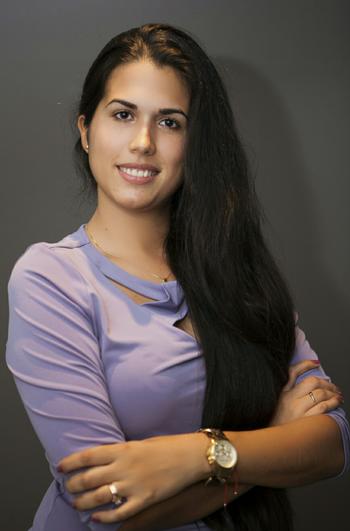Aurora Rodríguez Sánchez

International Research Training Group 'Temporalities of Future'
PhD Candidate
Project: "The temporary experience of young people. Compared study with students from UNAM (Mexico) and UH (Cuba) based on the uses and appropriations of Information and Communication Technologies"
Education
|
Since 09/2021 |
PhD Candidate, International Research Training Group ‘Temporalities of Future’ |
|
08/2020 |
PhD Candidate, UNAM, Mexico |
|
07/2018 |
Master of Arts (maestría) in Communications Science, University of Havana |
|
07/2014 |
Bachelor of Arts (licenciatura) in Social Communication, University of Havana |
Work Experience
|
Since 09/2021 |
Researcher, International Research Training Group ‘Temporalities of Future’ |
|
Since 08/2020 |
Researcher, Latinoamerican Studies PhD program, UNAM, Mexico |
|
Since 03/2020 |
Professor, Center for Radio and Television Studies (CERT), Cuba |
|
06/2019 – 06/2020 |
Professor, Computer and Audiovisual Company (CINESOFT), Cuba |
|
06/2018 – 12/2018 |
Director of Communications, Oncuba media platform, Cuba |
|
07/2014 – 07/2018 |
Professor, Communication Faculty, University of Havana, Cuba |
Project: "The temporary experience of young people. Compared study with students from UNAM (Mexico) and UH (Cuba) based on the uses and appropriations of Information and Communication Technologies"
The use of smart devices and technological tools connected to the Internet generates not only important changes in the ways of processing information and executing activities, it has been noted that individuals in contemporary connected societies undergo changes in ways of experiencing time, which they "feel" differently as their lives go by at an accelerated rate. Postmodernity raises the radicalization of the logic of expanded reproduction of capital in which is generated an acceleration of the process of space-time compression, as a result of the destructuring of the perception of life experience. This has clearly visible consequences for communication and its insertion into the interstices of everyday life. The alteration in the subjective sensation of time causes changes in the way in which reality, activities and the rhythm of life are perceived, and therefore, it is plausible to argue that they in turn condition a blurring of the idea of future in favor of a horizontal presentism, nuanced by the singularities of each contemporary Latin American context. The research aims to contribute from a critical approach to the debate on timelessness, presentification and spatialization.


